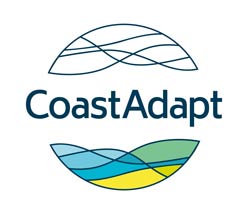You are here
Seek advice early to reduce legal risk
Coastal councils report they often feel stuck between a rock and a hard place when it comes to legal liability: legal risk exists no matter what planning decision they make. Which is why Justine Bell, law academic from the University of Queensland, suggests that councils should engage lawyers sooner rather than later.
Land use planning is one of the main areas of legal risk for local governments on the coast. ‘For councils to say no to development means they could have that decision challenged in court,’ says Justine. ‘But saying yes means they could face a lawsuit for negligence in the future.’
Coastal protection is another trigger point for legal risk and, according to Justine, is particularly difficult because built defences just transfer the risk to another place and time. ‘For example, sea walls open up government to ongoing maintenance and repair costs. However, sea walls may then defer impacts further down the coast to erode other beaches, ecosystems or public or private assets.’
The best option for councils is to consider the longer term and invest in good advice, says Justine.
‘Some impacts of climate change won’t manifest for several decades. But governments really need to thing about their current and future constituents, and make decisions that are sound in the long term.’
‘This means that councils should have a well-thought out policy that will help to back up their decisions and avoid ad hoc judgements. Ideally, any decisions will be backed by science and engineering.’
To develop such policies Justine recommends that councils should engage lawyers early. ‘It’s a better approach than councils having to employ lawyers when they go to court to defend decisions,’ she says.
What issues do you consider in seeking legal advice? How do you decide when is the right time to call a lawyer? Is timing of legal advice important or is it overshadowed by other issues?
- NCCARF’s CoastAdapt will soon have tools available to guide councils on issues to consider and when they will need to source legal advice.
- Dr Justine Bell-James lectures in law at the University of Queensland. She is the author of Climate change and coastal development law in Australia published by Federation Press in 2014.
v045pexgikt9kg3a.png





